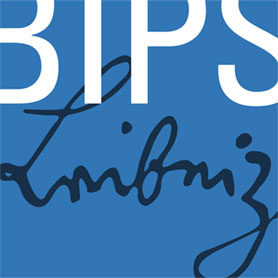ECRA Member Christin Diegmann:
“Data stewardship as a concept should guide all researchers on ethical, legal and technical aspects of handling personal health data.“
Research data are the basis of almost every research activity. These are (digital) data that, depending on the technical context, are the subject of a research process, arise during a research process or are the result of it. It is advisable to handle this data carefully and to examine technically adequate options for subsequent use. The data life cycle can help to understand the individual processes and steps involved in handling data. Nevertheless, questions remain unanswered for the researchers, such as: What kind of data is it? What are the differences between non-personal and personal data and how should this data and the associated data donors be treated ethically and legally? Since these questions affect more than just technocratic services (repositories), solutions (software & licenses) and levels of responsibility (data trusteeship), the data stewardship concept can be of great use as an aid and practical support.
In public health as well as in medical ethics, the consideration of morality between different actors and for the weighting of action and consequential decisions is often separated into different levels: the micro level, meso level and macro level. For data stewardship, this means considering the needs of the data donors at the micro level. At the meso level, technical models of anonymization and re-anonymization should be made available institutionally and in terms of information technology. At the macro level, these should correspond to state, supranational regulations and support health policy decisions.
When it comes to handling data, data stewardship can make an essential contribution to sensitizing researchers to these ethical and legal aspects. In particular with the perspective of keeping original data on durable and secure media for an indefinite period of time and for indefinite purposes and wanting to re-use them if possible.
Background
With regard to research and the use of health-related data, declarations of consent from test persons and patients are of particular interest. Written declarations of consent always contain a passage that includes consent to the transfer of personal data for medical research purposes. These purposes according to Article 89 General Data Protection Regulation (DSGVO) are of a scientific, historical and statistical nature and require suitable guarantees, i.e. technical and organizational measures, in order to guarantee the rights and freedoms of the data (living) subjects. Health-related data are defined as individual details about personal or factual circumstances of specific or identifiable natural persons. These include, for example, addresses, income and, above all, data relating to the individual state of personal health. When dealing with this sensitive, personal data, data stewardship can provide ethical and legal support in addition to technical support. At the beginning of every study, in addition to the allocation of third-party funds, the preparation of the study protocols and the application to the ethics committee are existential steps.
Only after their approval can a data management plan, which is now obligatory and expected by many sponsors, structure the research work and various data processes. The data management plan contains information about the goals, the data (sources), the documentation, the type of storage, the costs as well as legal and ethical aspects of a research project. In addition to the data management plan, the sponsors also increasingly expect data sharing as part of the new quality of work in research. The researchers need support here, as the value of that expectation for the researchers is also linked to the university's monetary infrastructure. The scientific exchange, the sustainable use of data and the promotion of interdisciplinary cooperation across national borders can only succeed if this is approached conceptually and as holistically as possible. In addition to the high scientific requirements and the technical relevance of the topic of data management and migration, the well-being of the data donors also plays a significant role.
The personal data should be used for health promotion and prevention. Therefore, the investigation of the concept of data stewardship from a health and humanities perspective is urgently required. To date, many workers with digital skills within the meaning of by data stewards or data scientist wanted, but there are no clear definitions and clear ideas about the role and tasks of this job description. Thus, these new callings are associated with a variety of tasks and responsibilities. However, some of these tasks are already being carried out by other professions. Data stewardship should therefore include significantly more than consulting services like technical, statistical questions and administrative services. The concept requires not only sensitivity but also responsibility in the complexity of the whole process which addresses much more.
In public health, data stewardship can be understood as a complex intervention, as the concept is characterized by the following properties:
- Complex interventions have multiple, synergistic components so that the sum of them is greater than their parts
- Complex interventions use a "multi-level" approach; they often relate to social and environmental determinants as well as to individual competencies and habits
- Complex interventions interact with their context
- Complex interventions can themselves be complex, just as they can become complex from the context in which they are used. Interactions between intervention and context can further increase the complexity and
- Complex interventions include spontaneous, unpredictable, and non-linear relationships between the components involved and the outcomes
The concept of data stewardship can be understood as a complex intervention in view of this and the applicable code of science, within which the data are understood as good, which should also be available to posterity.
The Medical Research Council can be used for further processing of this intervention. In the first step of the doctoral thesis (development), a comprehensive deductive (based on the rule) and inductive (based on the case) inventory will be carried out. For this purpose, currently active data stewards are analyzed, networked and examined by the PhD Candidate regarding their careers, professions and their professional understanding as a data steward. The focus of consideration is also on the data steward own further training as well as the further training like a curriculum that they would like to implement within the framework of their location. The results of this survey are intended to promote a standardization of the job description of a data steward in order to be able to describe the performance of data stewardship to researchers across Germany in a uniform manner, regardless of persons and institutions. In the second step (feasibility and piloting) the establishment of data stewardship should be accompanied in the sense of a close-knit process control. For this purpose, specific cases are being processed in a pilot project as a study support.
The resulting legal and ethical conflicts and issues should be examined more closely. A possible core conflict could be located between the data donor (patient, test person) and the researcher (also in the role conflict as doctor. The third step (evaluation) the costs and benefits of data stewardship for the Research, the researchers and the research institutions analyze and evaluate the proposed change process in terms of its success. This will show whether data stewardship is a concept and/or an independent entity in the sense of a data steward which can establish itself among the professions in health care, or whether parts of the concept will be found in the already existing, divergent professions in research data management as an additional qualification or as part of regular work flows.
Contact:
Christin Diegmann, Dipl.-Soz.Arb. M.Sc. M.A.Medical Vocational College of University of Leipzig Medical Center
Mail: christin.diegmann@medizin.uni-leipzig.de
 English (United Kingdom)
English (United Kingdom)  Deutsch (Deutschland)
Deutsch (Deutschland) 



